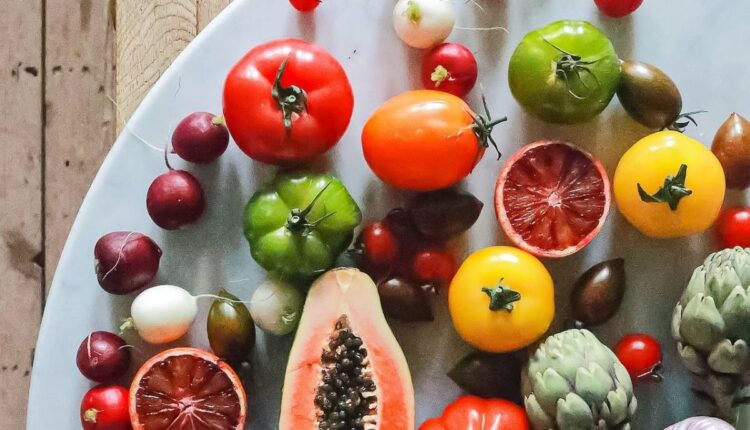Integrated Farming: Integrated farming became a new identity of success for the tribal farmers of Nicobar Island
The tribal farmers of Nicobar Island mainly depend on agriculture, and most of their farming is based on rain. About 80 percent of the agricultural land here is used for coconut cultivation. Apart from this, crops like banana, papaya, cassava and sweet potato are also grown on this island. In earlier times, tribal farmers used to farm with natural methods and did not use chemical fertilizers at all. Due to the lack of fruits and vegetables, their diet was mainly limited to some tuber crops, bananas and other local fruits.
Integrated farming gives new hope to tribal farmers
To improve agriculture in Nicobar Island, Central Agricultural Research Institute (CARI) introduced a new model of Integrated Farming. The main objective of this model was to motivate the tribal community to do farming in their surrounding area. CARI prepared a 400 square meter enclosure near tribal settlements, where an integrated unit was created for domestic poultry, goat rearing and recycling of organic waste.
This initiative was implemented in Kin Me and Kimios villages of Car-Nicobar, which directly benefited 40 farmer families. This integrated farming system not only gave farmers the opportunity to grow vegetables and fruits around their house, but also helped in building cheap shelter for goats. Along with this, useful seeds and plants for farming were also given to the farmers, so that they can further improve the yield of their crops.
Impacts of Integrated Farming
Initially, tribal farmers were a little hesitant to adopt this integrated farming model, but gradually they realized its benefits. Fresh vegetables grown near the house and fast-growing poultry and goats succeeded in changing their attitude.
For example, Kumari Sheela adopted this new technique and within four months, her small garden yielded a spectacular harvest of 50 kg of okra, 20 kg of green amaranth, 10 kg of radish and 10 kg of bottle gourd. Now she has become an inspiration not only for her village but for the tribal community of the entire Nicobar region. The integrated farming technique adopted by her has made her self-reliant and her success story has now become a model for other farmers as well.
Other farmers got inspiration from Kumari Sheela
Other farmers of Nicobar Island also took inspiration from Kumari Sheela’s success and adopted this model of integrated farming. Now, most of the village heads are requesting to implement this integrated farming model in their villages. This change is not only improving the standard of living of the farmers, but it is also having a positive impact on the environment.
This initiative has increased agricultural awareness in the local community, and people are now achieving better results by combining their traditional agricultural knowledge with modern techniques. This process has taken important steps towards making farmers self-reliant.
Benefits of Integrated Farming
The biggest advantage of integrated farming is that it gives farmers an opportunity to do many agricultural activities simultaneously. Under this system, farmers can focus not only on crop production but also on animal husbandry and organic waste recycling. This gives additional income to the farmers and also does not put any additional pressure on the ecosystem.
In addition, integrated farming helps farmers get more production at a lower cost. For example, goat rearing and poultry farming as well as fresh vegetables and fruits grown are also beneficial for the farmers from the nutritional point of view. Through this system, farmers get food security, and they can also earn additional income by selling their produce in the market.
Impact of integrated farming in future
This model of integrated farming on Nicobar Island can achieve even more success in the future. Through this, tribal farmers can work towards a stable and prosperous future not only for themselves but for the entire region. In the coming time, this model can be implemented in other tribal areas as well, so that the farmers there can also get its benefits.
In the coming times, more innovative agricultural models based on integrated farming can be developed, which are suitable according to local conditions and requirements. This will not only increase agricultural production, but will also contribute significantly to environmental protection. Through this model, sustainability of farming can be ensured and negative impacts on the environment can also be reduced.
Conclusion
Integrated farming has proved to be a successful and sustainable solution for the tribal farmers of Nicobar Island. It has improved the living standards of the farmers and taken significant steps towards making them self-reliant. This model has not only increased agricultural production, but it also presents a positive aspect from the environmental point of view.
In future, such models can be implemented in other areas as well, making overall improvement in the agriculture sector possible. Thus, Integrated Farming has become not just an agricultural technique but a new life philosophy for the tribal society, which is guiding them towards becoming prosperous and self-reliant.
Contact us- If farmers want to share any valuable information or experiences related to farming, they can connect with us via phone or whatsApp at 9599273766 or you can write to us at [email protected]. Through Kisan of India, we will convey your message to the people, because we believe that if the farmers are advanced then the country is happy.



